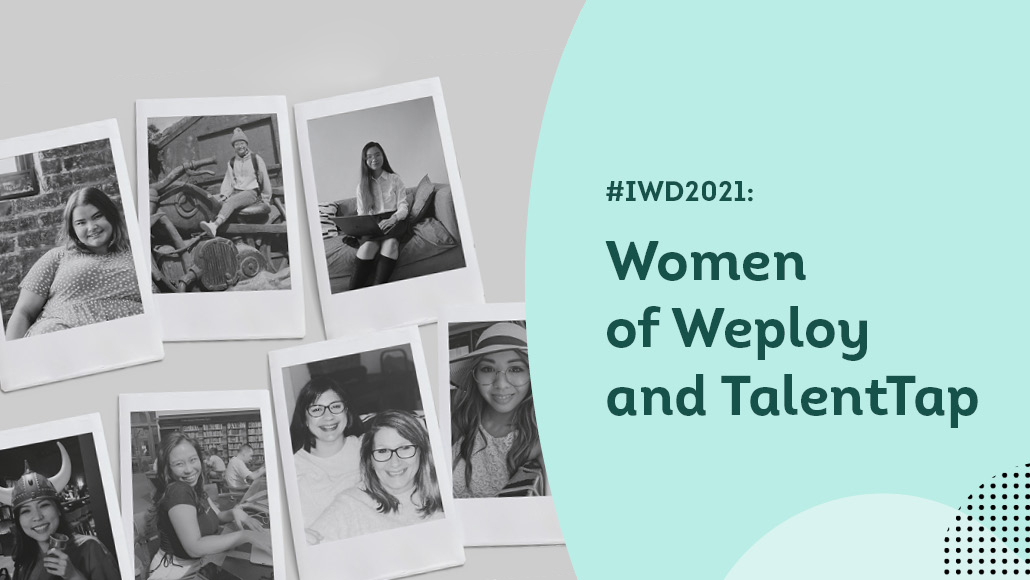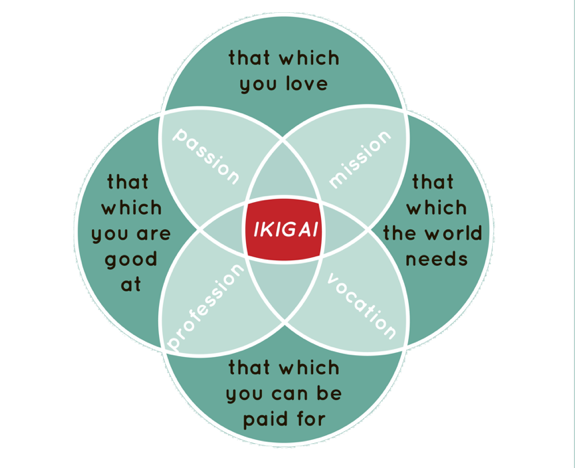As a sector with huge influence in shaping the infrastructure of the world around us and designing algorithms embedded in our everyday lives, STEM (Science, Technology, Engineering and Mathematics) has a disconcertingly under represented proportion of women. In the US, 24.24% of STEM graduates are women and 24.61% of the Tech workforce are women. Just 23.66% of Australian STEM grads are women and 28% of the Tech workforce are women. UK statistics are worse. The gender pay gap for workers in Tech in Australia is 20%. The issue is not new, but the statistics remain problematic. There is a growing body of evidence to suggest the idea that girls are genetically pre-dispositioned to have less of an interest in these fields is simply a myth - Hayaatun Sillem, CEO of the Royal College of Engineering points out that in countries like Malaysia and Oman, the engineering workforce is 50% female. The visibility of the Gender issue in these fields has skyrocketed however, and as the power of women in tech rises, so does their responsibility to lead change from within. Read on for our roundup of 5 of the most influential women in tech from the 19th Century, up to now.
Ada Lovelace
Despite being born well before the invention of the computer, Ada Lovelace - the daughter of world renowned poet Lord Byron, had a scientific mind that was atypical at the time for a female. Her tutor Mary Somerville introduced her to renowned mathematician and “father of the computer” Charles Babbage. The two struck up an unlikely friendship and Ada was captivated by Babbages’ invention of a Difference Machine that was intended to perform mathematical calculations. Transcribing a seminar given by Babbage about his “Analytical Engine”, she added in a commentary that was three times as long as the original article - suggesting that computers could be used beyond simple arithmetics to do advanced algorithms. In the notes, she describes an algorithm for a program which is considered to be the first ever written specifically tailored for computer implementation and therefore makes Lovelace the world’s first female coder and the forerunner of our list of women in tech.
Sheryl Sandberg
An activist and tech executive, Harvard graduate Sheryl Sandberg was headhunted by Mark Zuckerberg and his leadership team for the role of COO at Facebook HQ in 2008. In 2012 after turning around its profitability, she became the 8th, and first ever female member of the company’s board of directors. Previously the Vice President of Sales and Ops at Google, she was instrumental in the launch of Google’s philanthropic arm google.org and has been ranked in countless “Most Powerful Women in Business” lists. An outspoken champion for Women’s Rights, she is the author and founder of LeanIn.Org - a bestselling book and website intended to support and coach professional women who are prevented from stepping up and leaning into leadership roles by barriers that have been upheld by outdated traditions, stereotypes and assumptions. Sandberg has also founded organisation OptionB.Org which provides individuals with resources that help resilience in the face of adversity - of which she has personally felt the weight of, following the public backlash after the Cambridge Analytica scandal. Regardless - having more famous women like Sandberg on the boards of Global companies like Facebook, who are conscious of their social responsibility as a consequence, is the single most valuable way to address gender imbalance in the workplace.
Marissa Mayer
Employee number 20 at Google, Mayer graduated from Stanford University with a BS in Symbolic Systems, and an MS in Computer Science specialising in Artificial Intelligence. She is one third of the team responsible for Google Adwords - the advertising platform that allows businesses to advertise to customers based on their search terms. In 2012, Mayer was appointed President and CEO of Yahoo and is a board member of Walmart and Jawbone as well as the “original” web service provider. During her time at Yahoo, Mayer made big changes and product improvements, launching an online employee feedback program, and increasing the time allowed for maternity leave. The company acquired Tumblr in 2013, but the value dropped and Mayer was held responsible by some of the shareholders and investors. Mayer’s tenure at Yahoo was highly controversial, raising her profile and promoting her into a public media figure. She resigned on June 13, 2017 publicly highlighting many of the wins that were achieved during her time with the company, and since then she has continued to support tech talent with investments in several startups and non-for-profits. Despite being named as one of the World’s Most Disappointing leaders by Fortune magazine, she has also featured in their annual list of America’s 50 Most Powerful Women in Business no less than 7 times, and was in 2008, the youngest woman ever listed (at 33 years). With fearless resilience she is living proof of the possible outcomes of taking risks and failing fast - an essential trait for growth which everyone, male or female, can learn from.
Belinda Johnson
Texas Law Graduate Belinda Johnson was working for an internet radio streaming company in Dallas as general counsel and corporate secretary, which was eventually bought by tech giant Yahoo. Relocating to San Francisco, she continued as Yahoo’s deputy general counsel for product, litigation and privacy. After spending 15 years with the company, Airbnb CEO Brian Chesky hired her as the company’s first executive and she was appointed COO in February 2018. One of the most successful stories in the Silicon Valley startup landscape, AirBnB is a global industry disruptor with 4.5 million listings in over 80,000 cities. She lives out her belief that powerful women cannot make an impact without the support of others, and by encouraging mentorship schemes and getting involved with philanthropic organisations that support female empowerment, uses the company influence for the greater good. A board director at PayPal, she has been named in Fast Company’s Most Creative People in Business List, and in Elle magazine’s fourth annual Women in Tech list.
Whitney Wolfe
Born in 1989, Whitney Wolfe Herd is the youngest person on our list. College sorority girl turned serial entrepreneur, she has grown three tech companies since graduating in International Studies. Joining Hatch Labs at 22, she became Vice President of Marketing at Tinder, but despite co-founding the company and being credited with its exponential growth within the US student market, she has spoken of her time in the role as one of the “lowest moments of [my] life.” In early 2014 she left Tinder and sued them in a high profile sexual harassment case, and founded what is now their biggest competitor Bumble - the dating app that keeps women in control of the matching. With innovative launch campaigns that declared “We’re not playing the field, we’re leveling it”, the app had generated 100,000 downloads in its first month and after one year, had amassed over 80million matches. Despite enlisting security to protect Bumble’s offices following several aggressive misogynistic online attacks, Wolfe refuses to be intimidated. Instead, she encourages users of the App to help build a community of kind, hate-free and feminist users and grow the organisation into a movement for the establishment and maintenance of healthier, and more equal connections in business, health and homes all over the world.

Education:

In honour of International Women’s Day, we celebrate for women’s rights and equality around the world, everyday at Weploy. We’ve seen such an amazing accomplishment in the world, especially in recent years. In 2020 and 2021, countries with women leaders, (such as New Zealand, Germany and Bangladesh) received global recognition for their efforts during the COVID-19 pandemic; Kamala Harris became the first female, Black and South Asian American Vice President of the United States; and Scotland became the first country to allow free and universal access menstrual products.

We were the proud partners of World Forum Disrupt’s Women of the Web event last week which saw over 250 smart and engaged female leaders from the front lines of Sydney’s most influential digital organisations, come together to learn, share knowledge, connect and eat banana bread together. The irony of the event being hosted above an old-fashioned Gentleman's Club was not lost on us, but the energy and empowerment from that room was strong enough to drown out any whiffs of cigar smoke, single malt whisky, or patriarchal leanings that may have been lingering in the air.
The keynote presentations acknowledged thought-provoking and topical issues for everyone, by an incredible panel of guest speakers from the upper ranks of the world’s most innovative and successful organisations. These included but were not limited to:
- The rise of women in digital
- Equal Pay
- Building inclusive and equal company culture
- Breaking into C-Level leadership
- Maternity leave and legal loopholes
- Corporate social responsibility
- Embracing obstacles and redefining 'failures'
Needless to say, we came away inspired and equipped to make a change too. As part of this we wanted to share some of the highlights of the talks we encountered, beginning with Susie Bayes, Head of Partnerships & Philanthropy at The Guardian.
Purpose to Profit: The New Business Paradigm
The argument for companies to elevate social purpose within their business priorities rather than hide them away within “Corporate Social Responsibility” initiatives is becoming impossible to ignore.
J.Walter Thompson research adds to global evidence, revealing that:
- 89% of respondents “care personally” about protecting the planet
- 83% would always pick the brand that has a better record of sustainability
- 90% agree that companies/brands have a responsibility to take care of the planet and its people.
From Unilever’s success through sustainability to Adidas’s selling over a million shoes made from ocean plastic, the uplift to these businesses’ bottom line is proof that doing good is good for business. Susie shared her own purpose journey and that of Guardian Australia, demonstrating that everyone can make a change through their work.

“My Purpose journey started at the age of seven, making my best friend help me run a sale for the Cancer Research Campaign in her garden! I was obsessed with reading about inequality all over the world and through history and really wanted to make a difference in the world. Before university, I taught English for 6 months at a Tanzanian high school, climbing Mount Kilmanjaro with the students. Then, with a deep interest in understanding people and their motivations, I studied Social Psychology. But after I graduated, I got distracted by having fun marketing Paramount, Universal and 20th Century Fox films.”
A New Chapter
Susie came to Australia looking for change, and unfulfilled by her first role at a publisher, was delighted when she was contacted about a role at The Guardian. The news publisher’s unique ownership by The Scott Trust ensured editorial independence and Susie loved their in-depth reporting on areas that weren’t getting the media attention they deserved, including immigration, indigenous issues and the environment.
Joining “Guardian Labs”, the content team, as a Group Account Director, she was responsible for creating ideas and innovative solutions that would help brands connect with readers to achieve their commercial goals. 6 years since its launch in Australia, The Guardian was rapidly increasing audience numbers (now over 5 million Australians) but reach no longer equated to revenue. All publishers faced a challenge: with Google and Facebook taking almost all new digital advertising dollars, how could news pay its way?
Other publishers assumed people wouldn’t pay for content and resorted to clickbait to maximise advertising impressions or thought the only way to get reader support was to gate content behind a paywall. The Guardian chose a different, unique path, predicated on their unique ownership structure and inspired by their mission
“Through clarity and imagination, we will make space for hope”.
They supplemented advertising and brand content by asking those who valued them for voluntary support -through reader contributions and philanthropy. With this mixed revenue model, The Guardian broke even and their unique purpose now makes their civic journalism sustainable.
Finding “Ikigai”
At 2015’s Purpose conference, Susie came across the Japanese concept of “Ikigai”. She realised this captured the pivot she wanted to undertake and looked at how her work could drive positive change which also achieved client objectives. She started to show clients and The Guardian alike the value of creating content that connected to the audience through their values and purpose.
 It’s 4 years since she started this journey, demonstrating a totally new way of working and it hasn’t always been easy. The hard work has now paid off and her new role allows her to create purpose-led brand partnerships with influential partners from Bank Australia to Powershop. She’s even partnered with Coca Cola, highlighting that 70% of their bottles are now made from recycled plastic, providing a pathway to a circular economy.
It’s 4 years since she started this journey, demonstrating a totally new way of working and it hasn’t always been easy. The hard work has now paid off and her new role allows her to create purpose-led brand partnerships with influential partners from Bank Australia to Powershop. She’s even partnered with Coca Cola, highlighting that 70% of their bottles are now made from recycled plastic, providing a pathway to a circular economy.
This work fulfils The Guardian’s mission statement “using clarity and imagination to inspire hope.”. It provides organisations with an authentically relevant way to scale their positive impact by investing in storytelling from The Guardian’s trusted voice.
What’s your Purpose?
Susie is adamant that, whilst it can be hard, everyone can make change through their work. “If you feel like you want more purpose, think about what you care about and what the world needs - finding out more from initiatives like The UN’s Sustainable Development Goals.
You don’t have to leave big business to bring purpose to your work. Once you know what impact you want to create, mastering intrapreneurship can help you achieve it:
- Make a compelling business case (Providing data to back up your hunches)
- Negotiate your internal political system (Identify the decision makers)
- Build communities of purpose (advocates within your business)
- Learn from existing stories and models (do more with less) and
- Foster personal resilience (be obsessed with your mission and spend time with your supporters)
Connect with the League of Intrapreneurs for more
Susie believes that together, we can be a force for change. Purposeful business makes sense for all business and is proven to help companies better innovate, invest, serve customers and engage employees. She recommends communicating purposeful initiatives effectively to see maximum return on investment, ideally with a trusted third party voice such as Guardian Labs.
She concluded with Brené Brown’s quotation, encouraging us to choose the former. Read more content from the Women of the Web event below.
“You can choose courage. Or you can choose comfort. You can’t choose both.”
Streamline your hiring
Business support staff with no hidden fees. Start hiring anytime.
